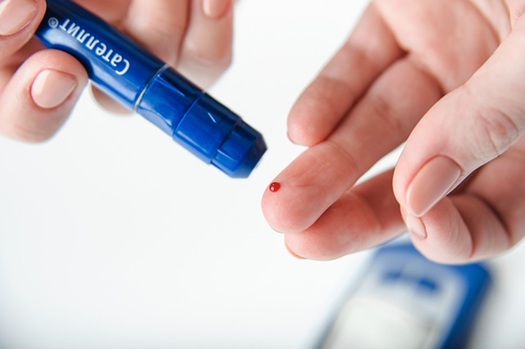Should Diabetics Avoid Fruits? Myth Debunked

Should Diabetics Avoid Fruits? Myth Debunked
Have you heard that people with diabetes should steer clear of fruits because they spike blood sugar? The fruits diabetes myth claims that fruits are too sugary for diabetics, leading many to skip these nutrient-packed foods. Let’s uncover the origins of this misconception, explore its cultural roots, and use science to show why fruits can be part of a healthy diabetes diet. Join us at omnimyths.com to get the facts on diabetes diet myths!
Origins of the Fruits Diabetes Myth
Where did the idea that fruits should be avoided by people with diabetes come from? This myth has roots in early medical advice and public misunderstanding.
Early Diabetes Diets
In the early 20th century, before modern insulin therapies, doctors often restricted sugary foods, including fruits, for diabetics to control blood sugar. Limited understanding of carbohydrates fueled the fruits diabetes myth, as fruits were lumped with refined sugars (University of California, San Francisco, 2022). This outdated advice lingered in public perception.
Misinformation and Media
In the 1980s and 1990s, popular diets and media warned against “sugar” in all forms, including natural fruit sugars. Without clear guidance, many assumed fruits were off-limits, spreading blood sugar myths (American Diabetes Association, 2023).
Cultural Variations of the Myth
Western Perspectives
In the U.S. and Europe, low-carb diet trends like keto have reinforced the idea that fruits, with their natural sugars, are risky for diabetics. Yet, dietitians in these regions now promote balanced diets including fruits (Harvard T.H. Chan School of Public Health, 2023). Misinformation persists in some communities, though.
Asian Cultural Norms
In countries like India, where diabetes rates are high (11.4% prevalence), traditional diets rich in fruits like mangoes are sometimes avoided due to fear of sugar spikes. Urban health campaigns, however, encourage low-glycemic fruits (All India Institute of Medical Sciences, 2022).
African Contexts
In Nigeria, starchy staples like yams dominate diets, and fruits are less emphasized, partly due to diabetes diet myths warning against their sugars. Rural communities may lack access to diabetes education, perpetuating the myth (University of Lagos, 2021).
Symbolic Meanings of the Myth
Fear of Sugar
The myth symbolizes a broader fear of sugar as inherently harmful, ignoring the difference between natural and added sugars. This oversimplification drives dietary restrictions for diabetics (American Psychological Association, 2022).
Control and Restriction
For people with diabetes, the myth reflects a desire to control a complex condition through strict rules. Avoiding fruits feels like a safe, simple choice, even if misguided (National Institutes of Health, 2023).
Modern Interpretations of the Myth
Diet Trends and Media
Low-carb influencers on platforms like X and TikTok often warn against fruits, citing their sugar content. Meanwhile, health blogs and organizations like the Mayo Clinic promote fruits as part of balanced diabetes diets, countering blood sugar myths (Mayo Clinic, 2024).

Growing Awareness
Diabetes educators now emphasize individualized meal plans, with apps like MyFitnessPal helping track fruit’s impact on blood sugar. Social media campaigns, like #DiabetesDietTruth, highlight fruits’ benefits, challenging the fruits diabetes myth (Forbes, 2025).
Debunking the Fruits Diabetes Myth
Let’s bust the fruits diabetes myth with evidence, showing why fruits can be a healthy choice for diabetics.
Fruits Are Nutrient-Dense
Fruits like berries, apples, and citrus are packed with fiber, vitamins, and antioxidants, which support overall health. A 2021 study found that whole fruits lower diabetes complications by 12% (Harvard T.H. Chan School of Public Health, 2023). They’re not the same as refined sugars.
Low-Glycemic Fruits Are Safe
Many fruits, like cherries and pears, have a low glycemic index (GI), meaning they don’t spike blood sugar rapidly. Research shows moderate fruit intake (1–2 servings daily) is safe for most diabetics (American Diabetes Association, 2023).
Fiber Slows Sugar Absorption
The fiber in fruits slows digestion, preventing sharp blood sugar spikes. For example, an apple (4g fiber) has a gentler impact than soda (0g fiber), debunking diabetes diet myths (Cleveland Clinic, 2023).
Individualized Plans Work Best
Diabetes management varies by person. Working with a dietitian to monitor fruit intake ensures it fits your blood sugar goals, proving fruit for diabetics is safe when planned (National Institutes of Health, 2023).
How to Include Fruits in a Diabetes Diet
Here’s how people with diabetes can enjoy fruit for diabetics safely.
Choose Low-GI Fruits
- Best choices: Berries, apples, pears, and oranges (low GI).
- Moderate amounts: 1–2 servings daily (e.g., 1 small apple).
- Avoid overripe: Riper fruits have higher sugar content.
Pair and Monitor
- Combine with protein: Pair fruit with nuts or yogurt to stabilize blood sugar.
- Check blood sugar: Use a glucometer to see how fruits affect you.
- Consult a dietitian: Create a personalized plan (American Diabetes Association, 2023).
Conclusion
The fruits diabetes myth wrongly suggests that people with diabetes must avoid fruits, but science shows low-GI fruits are healthy and beneficial. From outdated medical advice to cultural fears, this myth has no place in modern diabetes care. Enjoy fruits wisely and take charge of your health. Explore more health myths at omnimyths.com!
Frequently Asked Questions
Q: Why do some think diabetics should avoid fruit?
A: The fruits diabetes myth comes from early medical advice and fear of sugar, ignoring fruits’ fiber and nutrients (Harvard, 2023).
Q: Which fruits are safe for diabetics?
A: Low-GI fruits like berries, apples, and pears are safe in moderation, countering diabetes diet myths (ADA, 2023).
Q: How do fruits affect blood sugar?
A: Fruits’ fiber slows sugar absorption, making them safer than refined sugars for blood sugar myths (Cleveland Clinic, 2023).
Q: How much fruit can diabetics eat?
A: 1–2 servings daily, paired with protein, fits most diabetes plans, debunking fruits diabetes myth (NIH, 2023).
Q: Why do some cultures avoid fruit for diabetes?
A: In places like India, fear of sugar spikes fuels diabetes diet myths, but education is changing views (AIIMS, 2022).
Q: How can diabetics include fruit safely?
A: Choose low-GI fruits, monitor blood sugar, and consult a dietitian to enjoy fruit for diabetics (Mayo Clinic, 2024).
